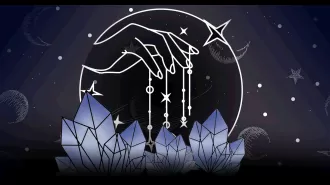Research finds that the level of satisfaction with their hair has a significant impact on the mental well-being of Black girls.
Study shows Black girls' mental health linked to hair happiness. UConn research finds satisfaction with hair impacts well-being for 193 adolescent girls.
January 21st 2025.

A recent study has brought to light the impact of hair satisfaction on the mental well-being of Black girls. Published in the journal Body Image, the research conducted by UConn focused on 193 adolescent girls of different racial backgrounds, including Black, white, and Latina. These girls were asked about their overall appearance satisfaction, experiences with discrimination, and symptoms of depression.
The study revealed that while there were similarities among the girls in terms of body image, their perceptions of their hair differed greatly based on their racial identity. In particular, the Black participants reported facing the most discrimination when it came to their hair. This discrimination and subsequent dissatisfaction with their hair was found to be a significant predictor of depressive symptoms in Black girls.
One of the researchers involved in the study, Adenique Lisse, has a personal connection to this topic as a Black graduate student studying clinical psychology at UConn. She was interested in exploring how specific physical characteristics affected the well-being of Black girls, and found that body image was not as significant for this group compared to white girls. However, hair has always been a contentious issue for Black girls and people in general, with societal standards often favoring looser curl patterns.
Lisse shared that this research made her reflect on her own experiences growing up and the prevalence of discussions around hair within the Black community. She also noted the recent movement towards embracing and celebrating natural hair, which has helped Black girls to take pride in their diverse hair textures.
However, Lisse acknowledged that the study only focused on girls from a city in Connecticut and may not capture the experiences of Black girls across the nation. Despite this limitation, the findings still shed light on important issues that need to be addressed to improve the mental health of Black girls.
Lisse believes that more work needs to be done to combat hair-related discrimination, especially in schools and workplaces. This could involve efforts from parents, teachers, and peers to promote acceptance and eliminate microaggressions against Black girls and their hair. As she continues her research, Lisse hopes to see more attention given to cultural factors in future studies related to race and mental health.
In conclusion, this study highlights the need for a deeper understanding of the impact of hair discrimination on the well-being of Black girls. By addressing these issues and promoting acceptance and diversity, we can work towards eliminating mental health stressors and depression triggers for Black teenage girls.
The study revealed that while there were similarities among the girls in terms of body image, their perceptions of their hair differed greatly based on their racial identity. In particular, the Black participants reported facing the most discrimination when it came to their hair. This discrimination and subsequent dissatisfaction with their hair was found to be a significant predictor of depressive symptoms in Black girls.
One of the researchers involved in the study, Adenique Lisse, has a personal connection to this topic as a Black graduate student studying clinical psychology at UConn. She was interested in exploring how specific physical characteristics affected the well-being of Black girls, and found that body image was not as significant for this group compared to white girls. However, hair has always been a contentious issue for Black girls and people in general, with societal standards often favoring looser curl patterns.
Lisse shared that this research made her reflect on her own experiences growing up and the prevalence of discussions around hair within the Black community. She also noted the recent movement towards embracing and celebrating natural hair, which has helped Black girls to take pride in their diverse hair textures.
However, Lisse acknowledged that the study only focused on girls from a city in Connecticut and may not capture the experiences of Black girls across the nation. Despite this limitation, the findings still shed light on important issues that need to be addressed to improve the mental health of Black girls.
Lisse believes that more work needs to be done to combat hair-related discrimination, especially in schools and workplaces. This could involve efforts from parents, teachers, and peers to promote acceptance and eliminate microaggressions against Black girls and their hair. As she continues her research, Lisse hopes to see more attention given to cultural factors in future studies related to race and mental health.
In conclusion, this study highlights the need for a deeper understanding of the impact of hair discrimination on the well-being of Black girls. By addressing these issues and promoting acceptance and diversity, we can work towards eliminating mental health stressors and depression triggers for Black teenage girls.
[This article has been trending online recently and has been generated with AI. Your feed is customized.]
[Generative AI is experimental.]
0
0
Submit Comment





